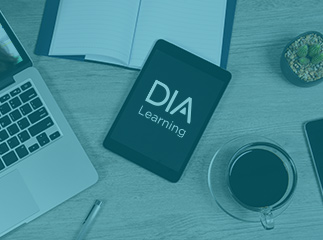Overview

Continuing Education Credits are not available for the archived offering.
This archive may be purchased through October 13, 2015.
Archive duration: 1 hour 32 minutes
Series Overview
Knowledge of new medicines for children and clinical research has increased over the past decades. A revolution has taken place in pediatric oncology, where new dosing and new combinations of anticancer drugs developed for adult cancer have made the diagnosis of child cancer no longer an automatic death sentence.
DIA is presenting a Seven-Part webinar series on Pediatric Drug Development, which will start with an overview of the challenges and historical background of pediatric drug development, then proceed to specific discussion of US and EU pediatric legislation, and, in four additional pivotal webinars, discuss technical specificities of dosing in children, particular requirements in pediatric clinical trials, the development of pediatric formulations, and the need and challenges of juvenile animal studies.
Part 2: Regulatory Framework US Overview
In 1997, the first successful pediatric legislation was introduced in the US and reduced the pediatric off label use of medications primarily developed for adults. As part of the FDA Modernization Act (FDAMA), it offered an added period of patent protection to reward pediatric research. It was further complemented in 2003 by the Pediatric Research Equity Act (PREA) that made it a mandatory requirement for pharmaceutical companies to take children into consideration during the drug development process. FDAMA was re-authorized in 2002 as the Best Pharmaceuticals For Children Act (BPCA), and both acts, mandatory PREA and voluntary BPCA, were re-authorized in 2007 under the FDA Amendments Act (FDAAA) that also enacted new pediatric medical device provisions. In 2012 the US pediatric legislation was authorized without time limitation as Food and Drug Administration Safety and Innovation Act (FDASIA).
Discussion will go through the US legislation from its beginnings in 1997 to the present situation. The speakers will reflect together the original vision, operational challenges and how the FDA, industry and academia have evolved their ideas and positions over this time period of now already 17 years.
Other Webinars in this Series:
Part 1: Overall Challenge: The Vision of Better Medicines for Children
Part 3: Regulatory Framework EU
Part 4: Dosing in Children
Part 5: Technical Development: Pediatric Formulations
Part 6: Preclinical Toxicology & Safety
Part 7: Operational Challenges of Pediatric Clinical Trials
Have an account?
Ways to register
Archived Webinar
Series Discount Available*
Buy 3 or more webinars in this series and save 15%
Buy 5 or more and save 20%
Buy the whole series and save 30%
*Order must be placed in one transaction for savings to be applied.
Individual registration is a license for ONE internet login allowing one viewer.
Group site registration is a license for ONE internet login allowing multiple viewers from one location.
Group Plus is a license for up to FIVE internet logins allowing one or more viewers at each login location.
CANCELLATIONS
No refunds will be provided in the event of a participant’s cancellation since all costs for this webinar have been prepaid by DIA. DIA reserves the right to modify or cancel programs and/or substitute presenters or panelists. DIA is not responsible for failure to deliver programs due to circumstances beyond its control.
Participants with Disabilities: Reasonable accommodations will be made available to persons with disabilities who attend an educational activity. Contact the DIA office in writing at least 15 days prior to event to indicate your needs.